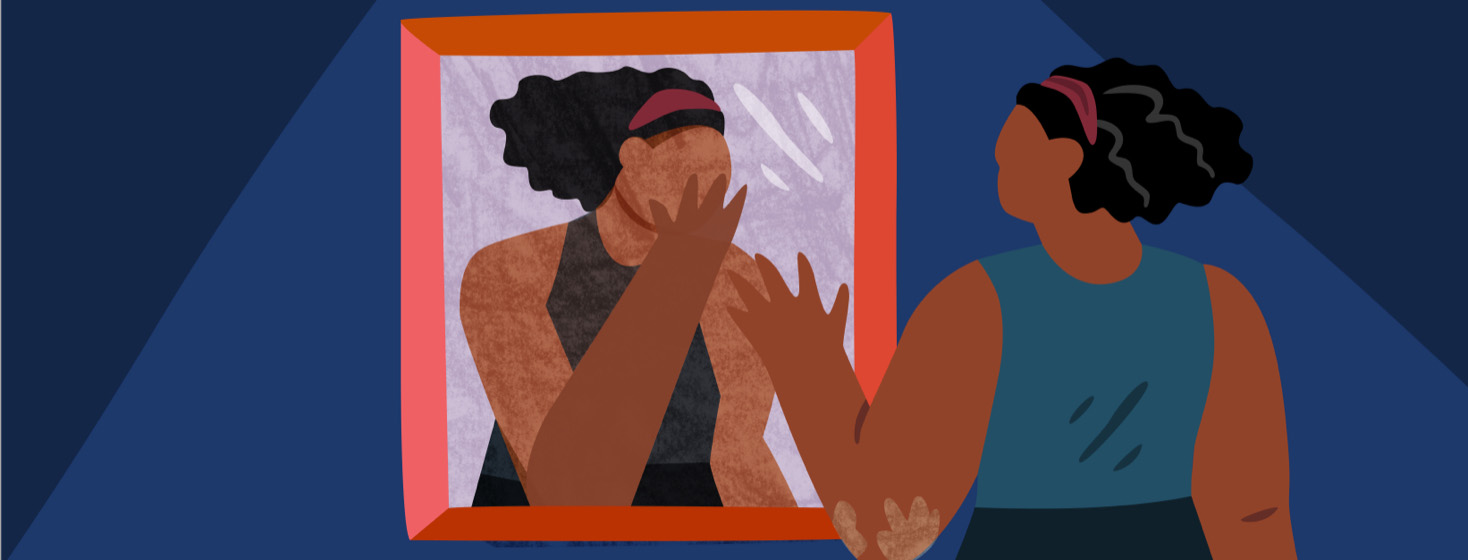Admitting You are Not Okay
I wake up each morning and remind myself that I am strong. I assure myself that I can do this and I will survive until the end of my day, whenever that may be. I look at myself in that mirror and say, “Yes, I am okay.”
This mantra works well enough in the morning. It allows me to get out of bed and start my day with a few good reminders. It distracts my brain enough from the morning stiffness and pain. Plus, it helps me have some clear thoughts to focus on as I try and find my way through the morning’s mental fog.
What happens when I'm not okay?
Pushing past the morning, the same mantra gets me through the remainder of the day. I’m okay. I can do this. I will survive. But then the day comes when I realize that I might be lying to myself. That in fact, I’m not okay.
What happens when I look at myself in the mirror and realize that I’m actually lying. I need to admit that I’m not okay.
Admitting we aren’t okay actually makes us stronger
I’m not going to lie. When I look in the mirror and admit to myself that really, I’m not okay, I can’t help but struggle with the implications of what this means for my mental health. I often like to think of myself as a strong person. Mental strength is a character trait that I value, and admitting that I’m not okay speaks to a perceived character flaw.
But this is when we need to remind ourselves that admitting we aren’t okay actually makes us stronger. It’s kind of like when we admit to someone that we are wrong. To be this honest, it takes an extreme amount of courage and bravery.
This is one of the trickier aspects of life with psoriatic arthritis because admitting you aren’t okay is found smack dab in the middle of the intersection of the physical health and mental parts of psoriatic arthritis.
The place where the physical and mental meet
Admitting you aren’t okay comes when the physical pain of psoriatic arthritis has impacted your mental health so much that you can no longer emotionally cope with the physical pain and fatigue.
It is at this point that it is impossible to separate physically painful joints and fatigue from the emotionally draining aspects of continuing to push through.
Why is it so difficult to admit? This is one of the most difficult parts to share with my family. Because, what if no one cares? Or maybe worse, what if they do care, but knowing I’m not okay upsets them or makes them feel bad?
It's okay to ask for help
What if I tell my doctor and she doesn’t believe me? Or if she doesn’t have a way to help? Or worse, if she thinks that my disease is no longer an actual physical issue, rather that it is the, “it’s all in your head,” excuse that so many of us have gotten from doctors.
What if she doesn't understand that it is the actual, true, physical pain that has led me to this point in my mental health? What will happen if she writes untrue things in my chart like, “malingerer” or worse, “drug-seeking?”
Perhaps admitting you aren’t okay is just the first step to becoming okay. This is the first step to admitting that what I am currently doing to manage my disease isn’t working. Admitting I’m not okay means that I know I need help, and I can’t do it alone anymore.
Do your very best to be honest with yourself
Whether that is more help from my doctor, family, or friends. Either way, admitting this truth allows me to see that I need to do some things differently to better manage my physical and mental health. You can’t ask for help if you don’t first admit to yourself that you need it.
So when you look in the mirror today, ask yourself the question and do your very best to be honest with yourself. How are you doing?

Join the conversation